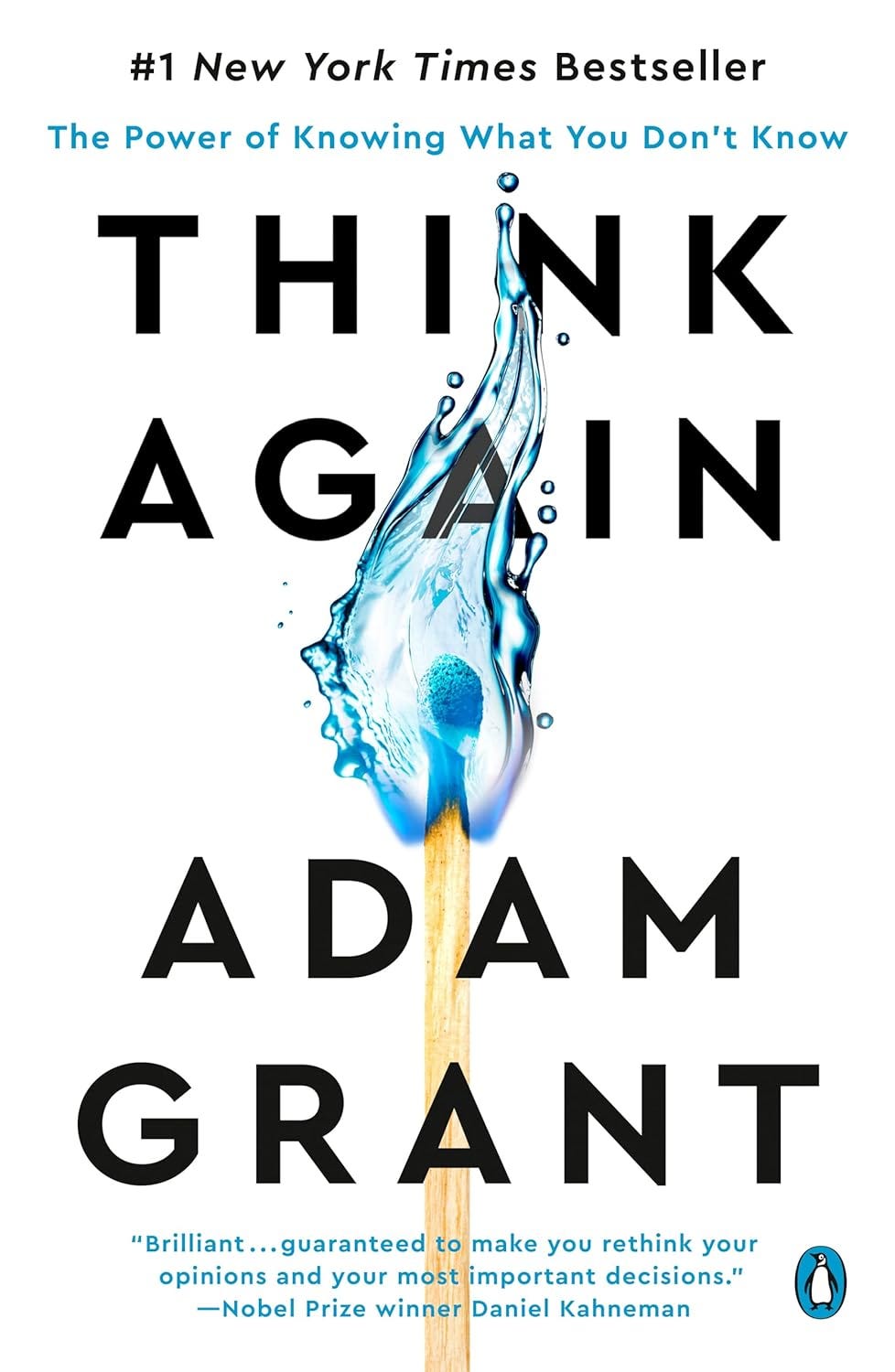Think Again: The Power of Knowing What You Don't Know
Book Review
I strongly believe in questioning our assumptions and updating our understanding with new information. So this book felt like a great fit for our monthly discussion and for the work many of us are doing.
I found Think Again: The Power of Knowing What You Don't Know by Adam Grant to be a compelling exploration of a critical skill that is missing too often in our society: rethinking.
Rethinking is the ability to question and revise our beliefs, opinions, and approaches in the face of new evidence or changing circumstances. And this book explores how we can do better about rethinking many aspects of our lives and work.
The book is an interesting blend of psychology, behavioral economics, anecdotes, and case studies from a variety of fields and industries. Using these, Grant illustrates how we often cling to outdated or incorrect beliefs, leading to poor outcomes.
The book focuses on three parts:
Individual rethinking: In this part, the book discusses how we can open our own minds and the cognitive biases that can prevent us from rethinking effectively. It also provides strategies for overcoming these biases and becoming more open-minded.
Interpersonal rethinking: In this part, the book discusses how to encourage others to rethink. It also provides strategies for communicating more effectively and opening others up to new ideas.
Collective rethinking: In this part, the book discusses how to build a culture of rethinking in organizations and communities. It argues that collective rethinking is essential for innovation and progress..
But what were some of the key takeaways for me? Let’s dive in.
Key Takeaways
Think like a scientist
One of the most important themes of the book is the idea that we need to think more like scientists and less like politicians, preachers, and prosecutors. Rather than campaigning for our side, preaching the virtue of our case, or prosecuting anyone who disagrees with us, we seek to better understand opposing views and maintain a curiosity about the world. Like a good scientist.
And as scientists, we view our ideas as hypotheses rather than facts.
Scientists are open to revising hypotheses and conducting more experiments to learn about the world. They are not afraid to admit when they are wrong, and they are always open to new information.
In the book, for example, Grant references the concept of "superforecasters," which was originally introduced by Philip E. Tetlock and Dan Gardner in their book Superforecasting: The Art and Science of Prediction. Superforecasters excel at predicting the likelihood of future events, surpassing average experts by a wide margin.




